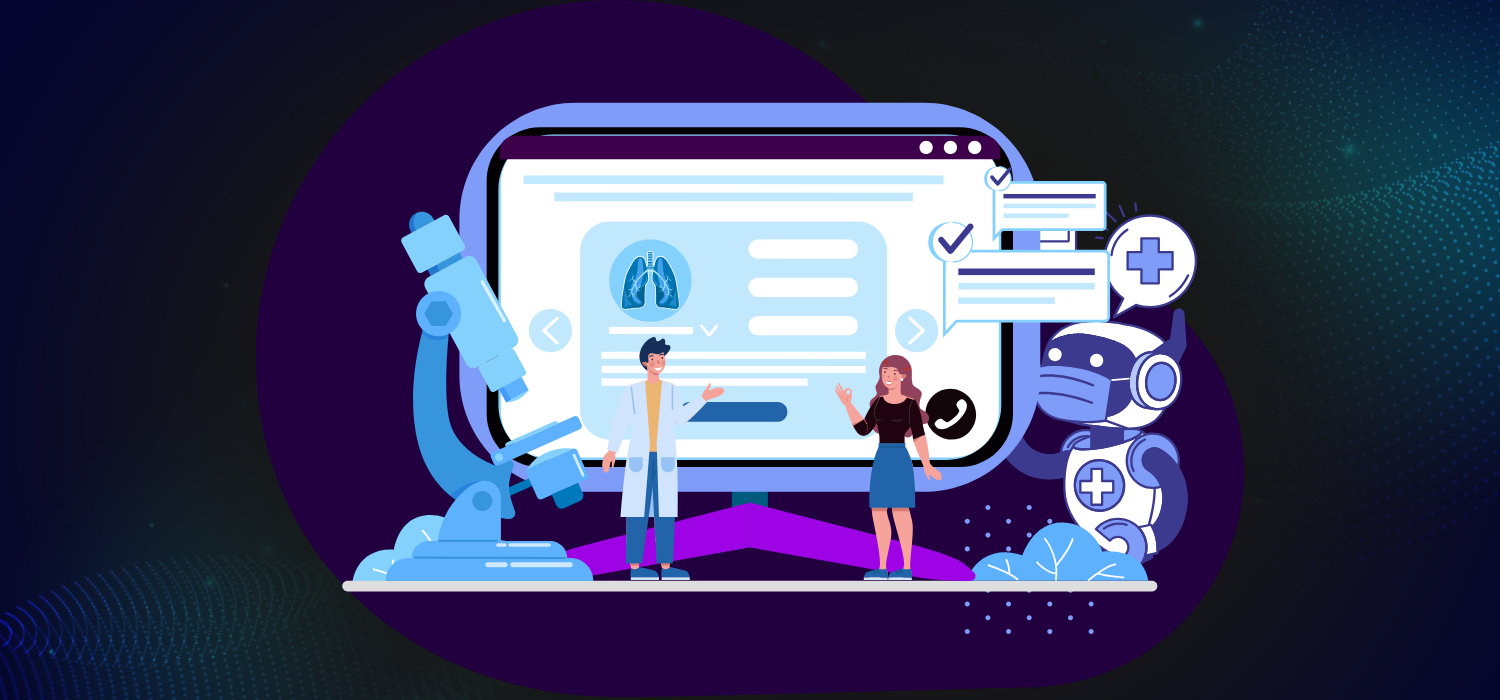Enhancing Patient Data Management with RPA in Healthcare Operations
In today’s healthcare landscape, the effective management of patient data is essential for delivering quality care and improving patient outcomes. However, healthcare organizations often face challenges in managing vast amounts of patient data efficiently while ensuring accuracy, security, and compliance with regulatory standards. Robotic Process Automation (RPA) has emerged as a transformative technology that offers healthcare providers a powerful tool for addressing these challenges and optimizing operations. In this blog, we will explore how RPA can revolutionize patient data management in healthcare organizations, leading to improved efficiency, accuracy, and patient care.
Challenges of Patient Data Management in Healthcare
Managing patient data in healthcare presents several challenges that organizations must address to ensure efficiency, accuracy, security, and compliance. Some of the key challenges include:
-
Data Volume and Complexity
Healthcare organizations deal with vast amounts of patient data generated from various sources, including electronic health records (EHRs), medical imaging, laboratory tests, wearable devices, and patient portals.
-
Manual Data Entry
Many healthcare processes still rely on manual data entry, which is time-consuming and error-prone. Manual entry increases the risk of data entry errors, duplication, and inconsistencies, leading to inaccurate patient records and potential patient safety issues.
-
Compliance and Regulatory Standards
Healthcare organizations must comply with stringent regulations and standards, such as the Health Insurance Portability and Accountability Act (HIPAA), to protect patient privacy and ensure the security of health information.
-
Interoperability and Integration
Interoperability issues hinder the sharing of patient information across healthcare settings, leading to fragmented care and inefficiencies in care delivery.
-
Data Security and Privacy
Data security measures, such as encryption, access controls, and audit trails, must be implemented to safeguard patient information and maintain trust with patients.
Benefits of Implementing RPA in Healthcare
Implementing RPA in healthcare offers numerous benefits for both healthcare providers and patients. Some of the key benefits include:
-
Increased Efficiency
RPA automates repetitive and time-consuming tasks such as data entry, claims processing, appointment scheduling, and billing, allowing healthcare organizations to operate more efficiently. By freeing up staff from manual tasks, RPA enables them to focus on higher-value activities that require human judgment and expertise.
-
Improved Accuracy
RPA bots perform tasks with a high degree of accuracy and consistency, reducing the risk of errors associated with manual data entry and processing. By minimizing errors in patient records, claims, and billing, RPA helps ensure data integrity and compliance with regulatory requirements.
-
Enhanced Productivity
RPA enables healthcare organizations to process tasks faster and more efficiently, leading to increased productivity across the board. With RPA handling routine tasks, staff can devote more time to patient care, clinical activities, and strategic initiatives aimed at improving healthcare outcomes.
-
Cost Savings
By automating manual and repetitive tasks, RPA helps healthcare organizations reduce labor costs, minimize operational expenses, and achieve cost savings. RPA bots work around the clock without the need for breaks or supervision, providing a cost-effective solution for streamlining healthcare operations.
-
Faster Revenue Cycle
RPA accelerates the revenue cycle by automating claims processing, billing, and collections, resulting in faster reimbursement and improved cash flow. By reducing the time and effort required to process claims and invoices, RPA helps healthcare organizations optimize revenue cycle management and increase revenue capture.
Use Cases of RPA in Patient Data Management
Robotic Process Automation (RPA) offers numerous use cases for enhancing patient data management in healthcare. Some of the key use cases include:
-
Automated Data Entry
RPA can streamline the process of entering patient data into electronic health records (EHRs) by automating data entry tasks such as patient demographics, medical history, medications, and lab results.
-
Patient Registration and Appointment Scheduling
RPA bots can automate the patient registration process by collecting patient information, verifying insurance eligibility, and scheduling appointments. RPA can ensure that patient data is captured accurately and appointments are scheduled efficiently, reducing wait times and improving patient satisfaction.
-
Claims Processing and Billing
RPA bots can extract data from claim forms, verify eligibility, and process claims faster and more accurately than manual methods, reducing errors and accelerating reimbursement cycles.
-
Revenue Cycle Management
RPA bots can review medical records, assign appropriate billing codes, generate claims, and follow up on unpaid invoices, ensuring timely and accurate reimbursement for healthcare services rendered.
-
Health Information Exchange (HIE)
RPA bots can automate data-sharing tasks such as patient record queries, referrals, and care coordination, enabling seamless communication and collaboration across healthcare organizations.

Conclusion
Robotic Process Automation (RPA) offers healthcare organizations a powerful solution for optimizing patient data management and improving operational efficiency. By automating repetitive tasks, streamlining processes, and enhancing data accuracy and security, RPA enables healthcare providers to deliver better patient care, achieve compliance with regulatory standards, and drive positive outcomes. As healthcare organizations continue to embrace digital transformation, the integration of RPA into patient data management workflows will play a crucial role in shaping the future of healthcare delivery.

 contact
contact

 By
By 


